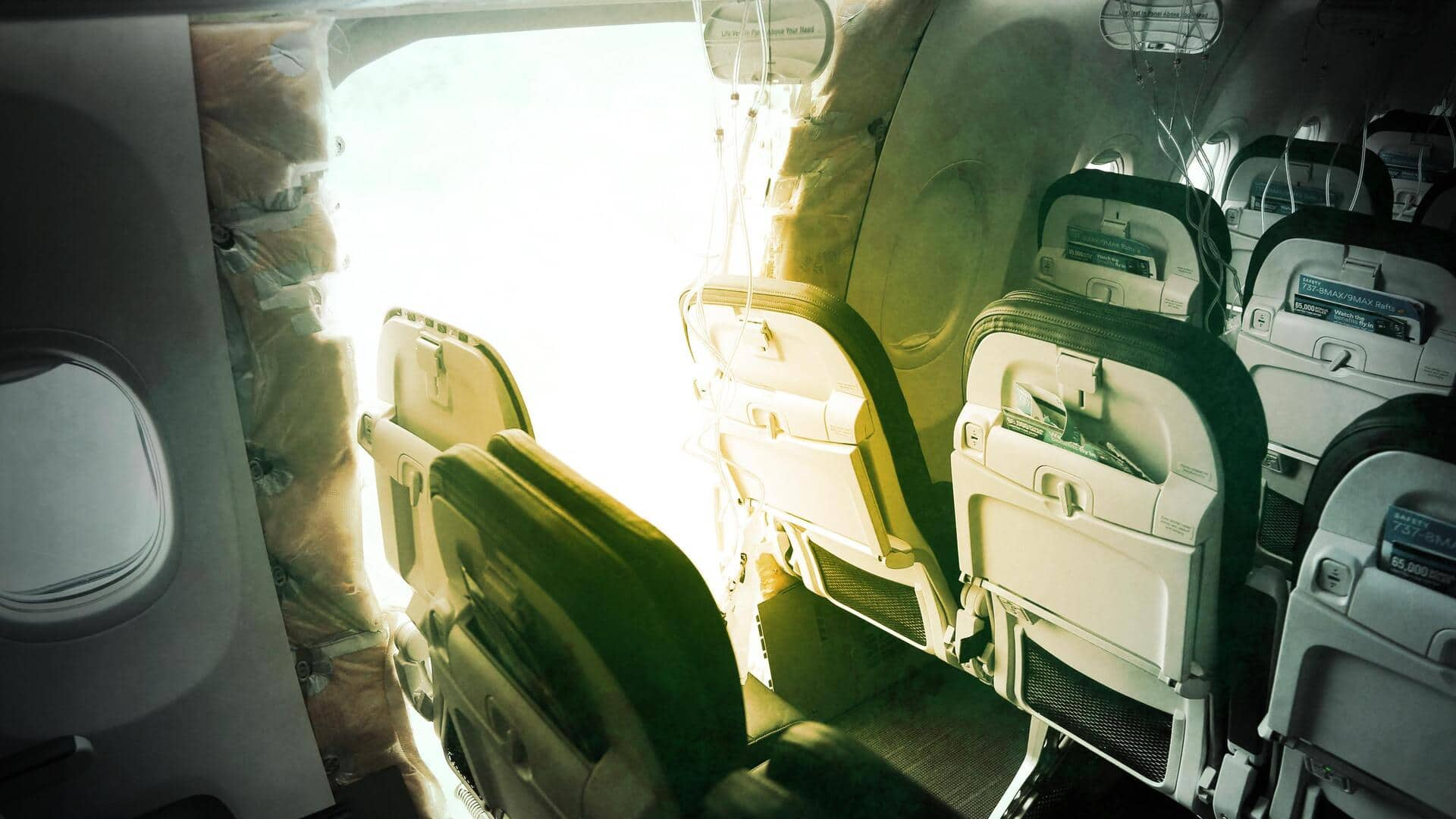
Don't hold babies during flights: Alaska Airlines incident prompts warning
What's the story
United States (US) National Transportation Safety Board Chair Jennifer Homendyat has warned parents against holding their babies on their laps while flying. The warning was issued following the recent midair blowout on an Alaska Airlines flight. During a press briefing, Homendyat urged parents to put their children under two in their seats in a Federal Aviation Administration (FAA)-approved carrier to ensure their safety in case of a blowout.
Context
Why does this story matter?
The development comes days after the alarming incident where a door plug blew out of Alaska Airlines Flight 1282 mid-flight, allegedly due to some loose bolts. The Boeing 737 MAX 9 aircraft had to make an emergency landing on Friday in Oregon after an outer section of the plane ripped apart. The flight carrying 177 flyers landed safely, and no injuries were reported.
What Next?
3 infants were onboard Alaska Airlines flight
The federal official also said that there were "three babies in the laps of caregivers." Homendyat, however, confirmed that the Alaska Airlines flight attendants aboard were immediately concerned about the babies, as well as the four unaccompanied minors on board, and ensured they were safe. The official added that there were three passengers aboard the flight who were not wearing seatbelts.
Details
Aviation expert flags major concerns over same issue
Speaking to the Washington Post, University of North Dakota's Department of Aviation assistant professor Kwasi Adjekum also endorsed Homendyat's safety alert. Adjekum suggested that if a passenger were holding a child close to where that panel blew off, the explosive force would've sucked the kid out of the plane. As a norm, babies under two years old can fly for free and don't need a separate flight ticket in the US.
Insights
All Boeing 737 Max 9 aircraft grounded amid blowout incident
On Saturday, the FAA ordered all Boeing 737 Max 9 aircraft to be grounded until thorough inspection was completed. Amid the uproar, Boeing CEO Dave Calhoun admitted that it was the company's error and pledged "complete transparency" while they tackled the matter. During a recent safety meeting, Calhoun noted, "We're going to approach this, No. 1, acknowledging our mistake. We're going to approach it with 100% and complete transparency every step of the way," he added.